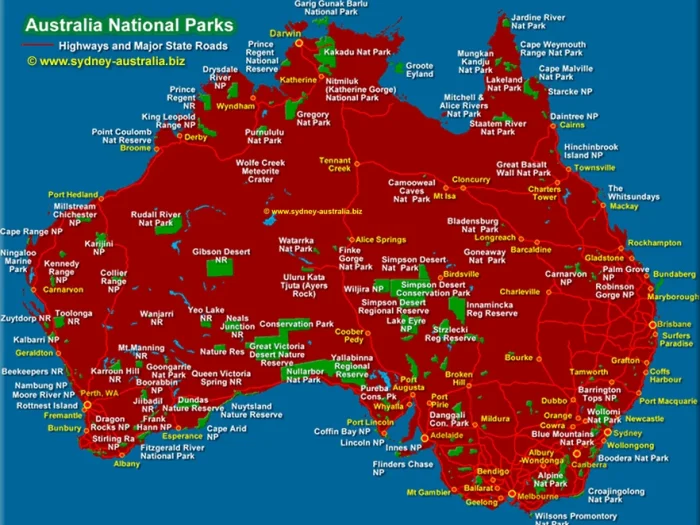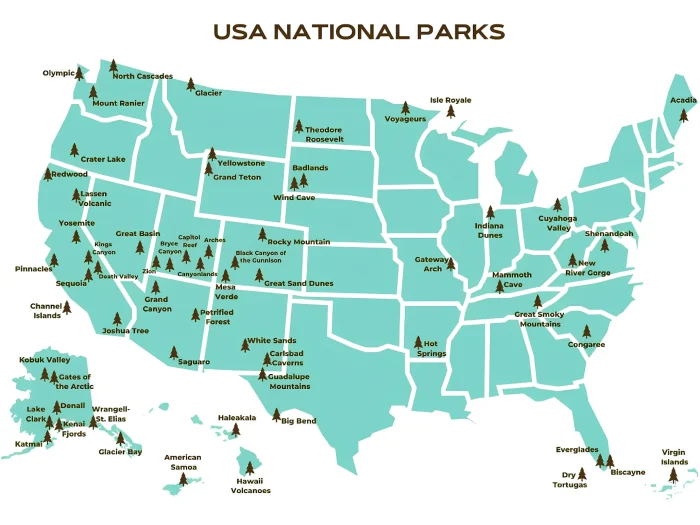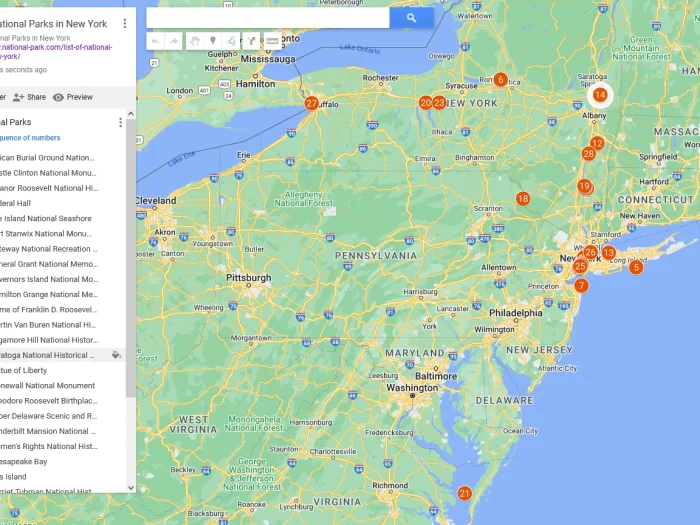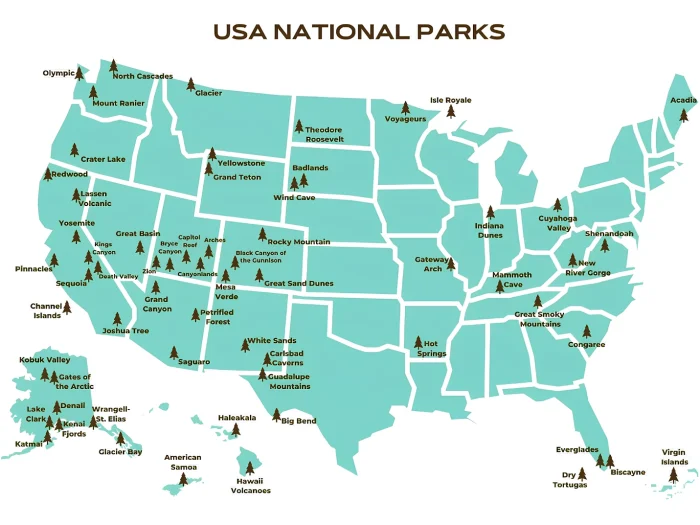The Role of National Parks in Experiential Education for Students
National parks, with their expansive landscapes, varied ecosystems, and abundant historical sites, offer an exceptional and interactive learning atmosphere for students. These natural reserves aren’t solely for leisure and recreation; they are lively educational environments unbounded by walls, providing priceless opportunities for practical education. Via organized initiatives and casual expeditions, national parks education cultivates a profound comprehension of ecological science, conservation, history, and geography among scholars. This article explores how national parks function as a vital element of experiential learning, drawing attention to the advantages they offer to academic endeavors.

Integrating National Parks into Curriculum
Teachers and schools can integrate the national parks education program into their curriculum to augment theoretical understanding with hands-on experience. These programs, customized for different educational levels, include an extensive range of topics from ecology and biodiversity to cultural heritage, providing content in line with the curriculum that elevates students’ learning adventures.
National Parks Benefits for Holistic Development
Educational programs suggested within national parks offer a conducive environment for the comprehensive growth of students, making a substantial contribution to both their individual development and scholastic accomplishments. Through immersing students in the unmatched classroom of nature, these programs employ the potency of learning through experience to encourage the growth of a spectrum of crucial life aptitudes.
Enhancing Critical Thinking and Problem-Solving Skills
One of the primary advantages of interacting with national parks is the Improvement of analytical reasoning and issue-resolution abilities among students. National parks Pose tangible environmental dilemmas and inquiries, motivating students to apply scientific principles, participate in insightful analysis, and suggest viable solutions. This experiential learning technique inspires students to:
- Analyze complex ecological systems and understand their interdependencies.
- Study environmental matters, covering conservation methods and the influence of human activities on wildlife habitats.
- Develop informed conclusions and engage in discussions on sustainable practices.
Building Social Skills through Collaborative Learning
The collaborative nature of activities in national parks plays a significant role in building social skills among students. Group projects, such as biodiversity surveys or trail restoration efforts, require students to work together, communicate effectively, and support each other’s learning. These experiences foster a sense of community and cooperation, highlighting the importance of teamwork in achieving common goals. Additionally, students learn to:
- Communicate ideas and listen actively to peers and instructors.
- Lead initiatives or contribute to group efforts, developing leadership abilities.
- Navigate interpersonal dynamics, enhancing emotional intelligence and empathy.
Promoting Emotional and Physical Well-being
Undisturbed and impressive sceneries of national parks provide an ideal scenario for boosting students’ psychological and physical wellness. Physical activities, such as hiking, kayaking, or wildlife tracking, not only improve physical health but also offer emotional well-being perks by reducing tension and boosting spirits. The connection to nature and the calmness of national parks enhance:
- A sense of peace and heedfulness, encouraging learners to develop an introspective practice.
- Increased bodily movement levels, supporting total health and fitness.
- A reverence for the magnificence and sophistication of nature, nurturing a lasting feeling of wonder and interest.
Encouraging Environmental Stewardship
Direct experiences with the natural world and its vulnerabilities nurture a deep sense of environmental stewardship in students. Educational programs in national parks emphasize the importance of conservation, sustainability, and responsible citizenship, inspiring students to:
- Advocate for environmental protection and sustainable living practices.
- Engage in community initiatives focused on environmental conservation.
- Adopt behaviors that reduce their ecological footprint and encourage others to do the same.
Overcoming Academic Challenges with National Parks Education
While the benefits of national parks in education are clear, integrating these experiences into the academic calendar requires careful planning, especially when considering the academic workload of students. To ensure that educational trips to national parks complement academic progress rather than hinder it, educators and students often seek flexible solutions.
One possible remedy is for students to pay for assignments USA, equipping them to efficiently manage their coursework during involvement in field outings or extended educational endeavors within national preserves. This approach permits students to wholly submerge themselves in the participatory learning initiatives furnished by national parks while upholding their academic duties.
National Parks Information for Students: Enhancing Awareness and Accessibility
To maximize the educational impact of national parks, making information about these natural treasures accessible and engaging for students is essential. Numerous national parks currently offer digital resources, virtual walkthroughs, and engaging materials, bringing the marvels of the parks to students irrespective of their geographical position. This availability guarantees that every student has the chance to derive value from the educational resources provided by national parks, encouraging a more profound comprehension and admiration of natural surroundings.
Digital platforms play a crucial role in this effort, offering a wealth of national parks information for students. From in-depth articles about ecosystems and biodiversity to immersive virtual reality simulations that replicate the experience of being in the parks firsthand, these resources are crafted to enthrall and inform. By making use of technology, national parks can surpass geographical boundaries,permitting students from urban locales or distant regions to explore varied terrains and learn about conservation efforts, wildlife, and the significance of conserving natural splendor for succeeding generations.
Conclusion
National parks significantly enrich student education by blending academic learning with hands-on experiences in nature. Through education programs in these parks, students gain a deeper understanding of environmental and historical concepts, enhancing their critical thinking, leadership, and environmental stewardship. Incorporating national parks into educational curriculums, alongside flexible academic solutions like paying for assignments, equips students with a well-rounded educational foundation, readying them for future challenges and enriching their personal and academic growth.




